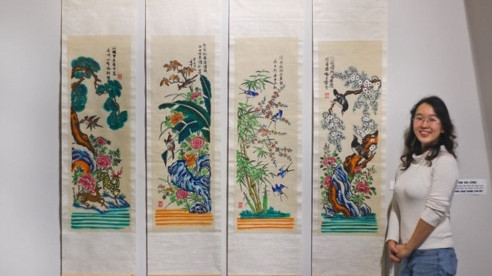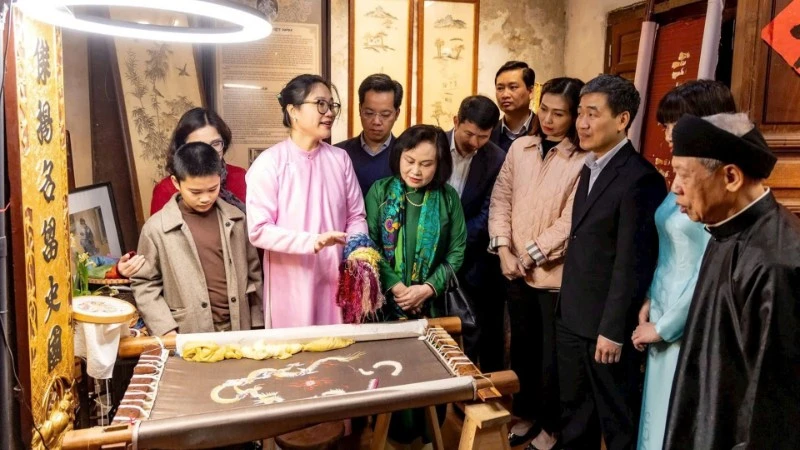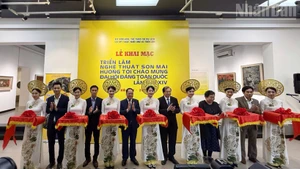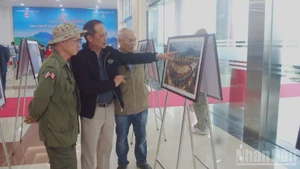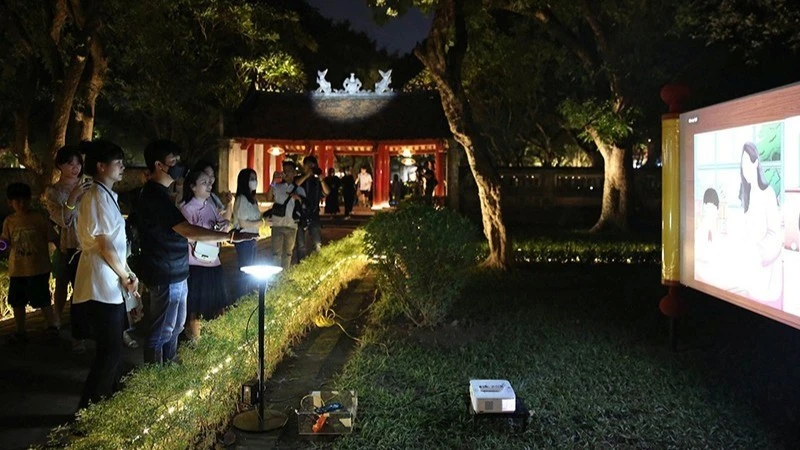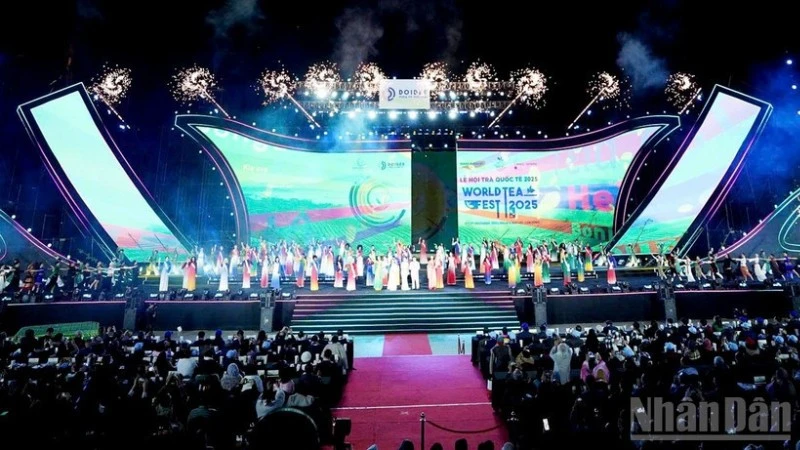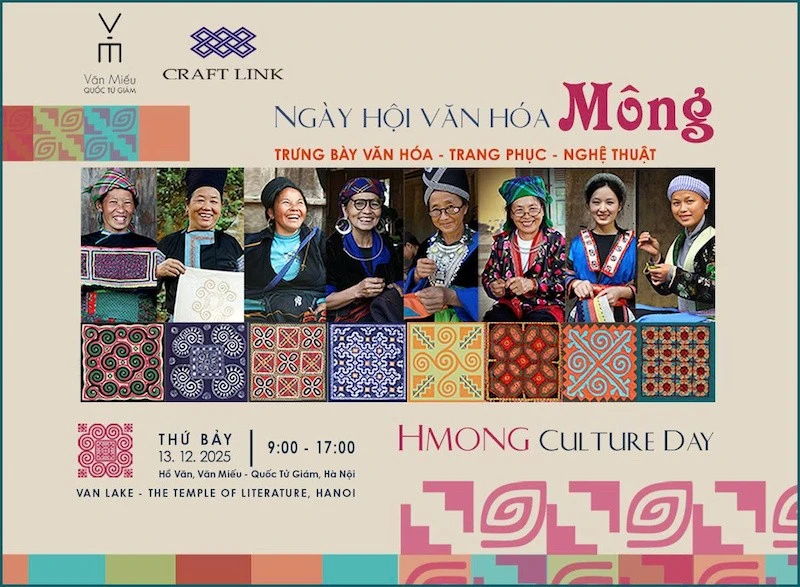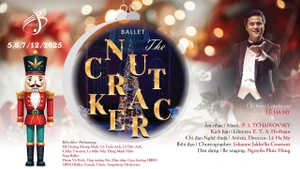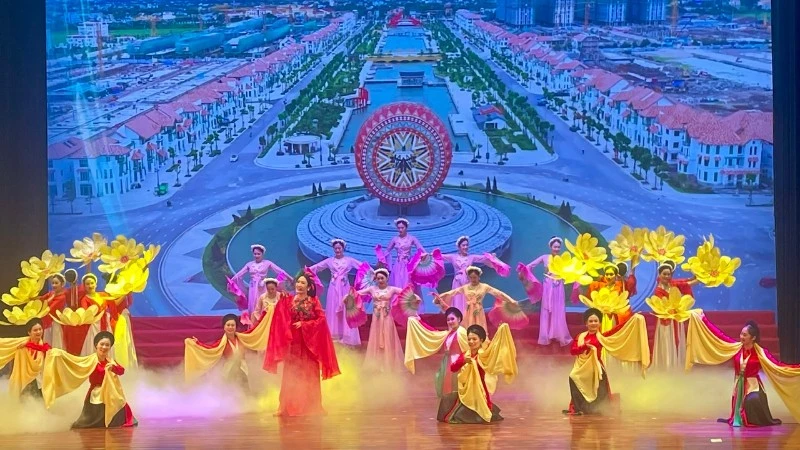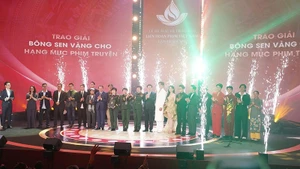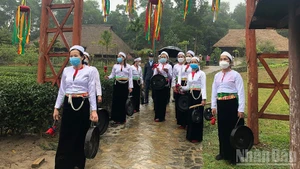Trang granted an interview to Nhan Dan (People) Newspaper on her interest in the folk arts as well as her plans for the future.
Question: Why did you choose Hang Trong folk painting as the major background for your first project?
Designer Trinh Thu Trang: I was born and raised in Hanoi, the thousands-of-years-old capital city with a rich culture. I am upset to witness the gradual disappearance of many traditional cultural values of the capital city.
My very first memory on Hang Trong folk painting was a calendar at my grandfather’s house, which featured the ‘Ca Chep Trong Trang’ (A Carp Beholding the Moon), a well-known painting in the Hang Trong folk painting genre. The iconic folk painting of Hanoians in the past was also mentioned by my teachers when I was an elementary student.
A few years ago, when I hosted an exhibition on the traditional Tet (lunar New Year) celebration of Hanoians in the past, I had an opportunity to meet with Le Dinh Nghien, the last Hang Trong folk painter, who helped me gain a deeper research into and understanding on the treasured value of the folk genre.
Utilising the principal colours of blue, pink, red, orange, yellow, black and green, Hang Trong folk painting artisans created bright and colourful but elegant art works.
However, I am concerned that the treasured folk painting style is now on the brink of oblivion. Thus, I started saving my money to collect Hang Trong folk paintings, with 67 paintings being added to my collection so far.
I have also called on friends and collective to support the revival of the genre; however, the results were not as I expected. Therefore, I thought of a more effective way to make Hang Trong folk painting thrive again.
In January last year, you organised an exhibition titled ‘Nhung Dieu Xua Cu Moi Me’ (The New Classics), showcasing Hang Trong folk paintings. Can you share us about the exhibition?
After years of collecting a number of Hang Trong folk paintings, I hosted two small exhibitions to introduce the public to the unique genre.
I invited cultural researcher Phan Ngoc Khue and artisan Le Dinh Nghien to talk to visitors about the aesthetic features and the process of making the paintings. We also invited children to try their hands at making a Hang Trong painting.
It was heartening that half of the visitors to my exhibition were young people aged between 18 and 24.
Can you share us about your ‘Vietnamese Colours and Patterns’ project?
The more I did my research into Hang Trong folk painting, I realised the huge potential of applying the painting’s patterns and colours into life, ranging from fashion and packaging design to home interiors.
This motivated me to establish S-River in 2017, a group of youngsters who share a common interest in ancient Vietnamese culture, and launched ‘Hoa Sac Viet’ (Vietnamese Colours and Patterns) project.
We select the typical colours and patterns seen in Hang Trong folk paintings and then arrange and digitalise them in order to apply them in our designs and products, such as shoes, notebook covers, gift wrapping papers, and cake boxes.
We also released a book to introduce designers to the patterns and colours of Hang Trong folk painting.
It is a complaint that young people nowadays seem to turn their back away from traditional culture. What do you think about this?
I don’t think so. From my working experience, I think that youngsters are willing to learn and promote their traditional culture if the most favourable conditions are created to get access to and be thoroughly introduced to it.
From my point of view, culture can be seen as a water flow and each of us is a water drop. When drops are gathered together in the same direction, we create a water flow. Where there's a will, there's a way.
Thank you so much for your sharing!
Selected products from Hoa Sac Viet’ Vietnamese Colours and Patterns) project:




